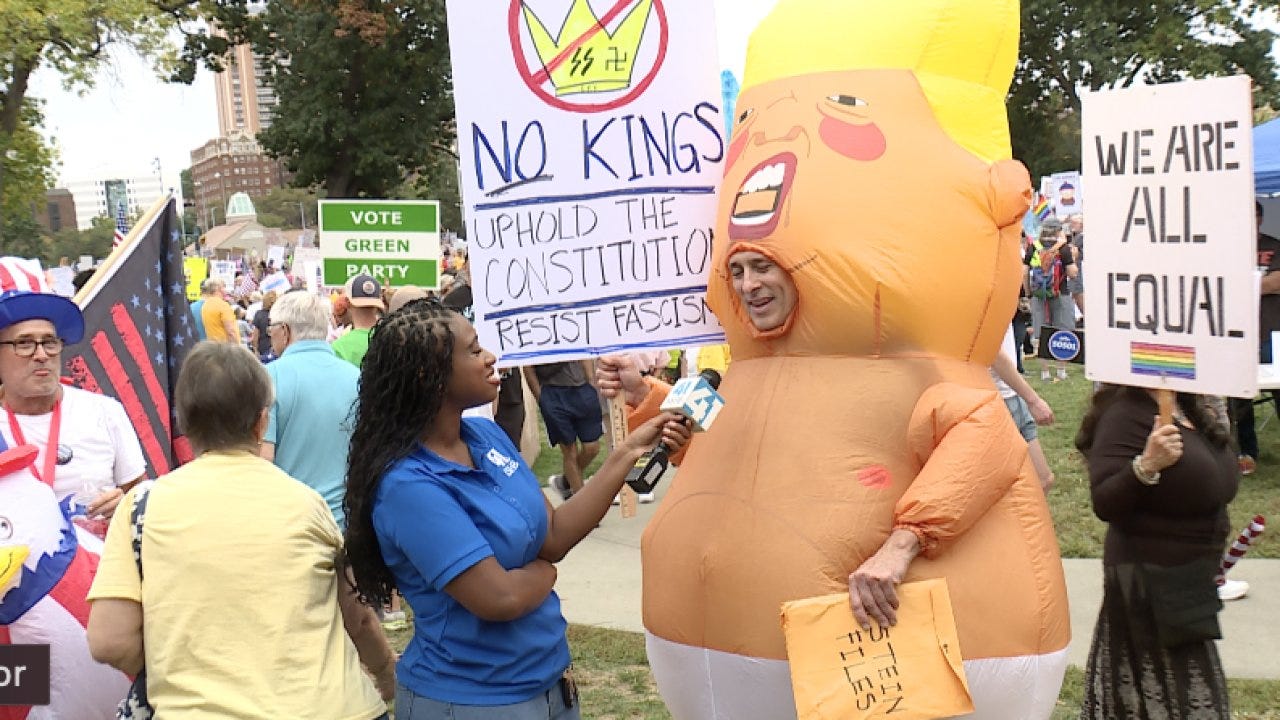How the American left became post-political, and how to change that
Description
Episode Summary
There is no question that last month’s No Kings protests were huge success. Millions of people turned out in many towns and cities to show their opposition to Donald Trump. But what comes next?
That is a very important question, and it’s one that recent left-of-center protest movements have had a real difficulty answering.
While it is important to show up and be with others who have similar values, people who want to build a better world must first build it among themselves before they can have it in society at large.
To defeat Trumpism, you have to replace it by answering the questions that it purports to answer—and by reaching people that have been left behind politically by the broader center-left, including the 89 million non-voters, and many of the less-informed people who didn’t realize what they were getting when they chose Trump in 2024.
These are difficult things to think about, and so I wanted to do that with Deva Woodley, a professor of political science at Brown University and a research fellow at the Charles Kettering Foundation, where she studies political change movements. She’s also the author of two books on the subject, The Politics of Common Sense: How Social Movements Use Public Discourse to Change Politics and Win Acceptance, and also Reckoning: Black Lives Matter and the Democratic Necessity of Social Movements.
The video of this episode is available, the transcript is below. Because of its length, some podcast and email apps may truncate it; access the episode page to get the full text. You can subscribe to Theory of Change and other Flux podcasts on Apple Podcasts, Spotify, Amazon Podcasts, YouTube, Patreon, Substack, and elsewhere.
Theory of Change and Flux are listener supported. We need your help to keep going. Please subscribe to stay in touch!
Related Content
Free excerpt from Matthew’s new e-book, “What Republicans Know”
No Kings showed that millions of Americans have had enough of Trump’s authoritarianism
Election 2025 suggests that Republicans have lost their recent gains among Hispanic Americans
Protests must be about starting movements rather than blowing off steam
How the decline of black churches and media have indirectly increased black support for Republicans
Americans are deeply dissatisfied with society, Democrats must speak to their rightful concerns
Audio Chapters
00:00 — Introduction
14:43 — Changing voters vs. tapping into inherent orientations
20:59 — How the American left became post-political
30:16 — Successful politics matches our somatic-abstract cognition
42:57 — Evangelical politics and expanding personhood
47:57 — The left has more money than the right
57:07 — Funding autonomy and building parallel institutions
01:02:40 — Conclusion
Audio Transcript
The following is a machine-generated transcript of the audio that has not been proofed. It is provided for convenience purposes only.
Matthew Sheffield: And joining me now is Deva Woodley. Hey, Deva, Welcome to Theory of Change.
Deva Woodly: Hi Matthew. Thanks so much for having me on. I’m delighted to be here.
Matthew Sheffield: Yeah, it’s gonna be a great discussion, I think. So, before we get into it though, let can you just give the audience a little bit about your background and some of the things that you study, and how you got into that?
Deva Woodly: Absolutely. Sure. I’m a professor of political science at Brown University and I study social movements political participation, public meaning and discourse. And I also am just generally interested in how ordinary people impact politics and particularly how movements are able to create political change.
Matthew Sheffield: Okay. Yeah. And so the focus of our discussion today is gonna be exactly that, but in the context of the recent No Kings protests that we saw across the country and whether they can turn into something else bigger and more, that does something really big, and make some real change in the country.
So this is the second No Kings protest that we saw. And a lot of people showed up for these things. But I don’t know, do you think, what do you think are, they, I think there’s more things that have to be done afterward.
Deva Woodly: Absolutely right. One of the things that we’ve found in the 21st century, cycle of protests that we’ve had, that really began I think with the 1999 protests against the WTO and the IMF are that. We have had increasingly large demonstrations, right? So increasingly, large public demonstrations in the street.
However, we have had these large demonstrations at the same time that we’ve had declines in civil society organizations, across the spectrum, but particularly on the center to the left. And when I say civil society organizations, I mean those organizations that are independently organized, not only for political purposes, but for the purposes of getting people together to do something right or getting to people to together for leisure time or to enjoy some kind of interest.
As we know from Robert Putin’s work and from Theta Scott Poll’s work, these kinds of organizations have been in decline. Basically since the 1970s, so you have a little bit of a mismatch between the capacity for mobilization, which we’ve been seeing increasing, but the capacity for organizing, which we’ve been seeing decreasing.
Matthew Sheffield: Yeah, I think that’s right. And and this has been something that’s been true across the various cycles that we’ve had. So, I mean, there were a bunch of different protest movements since that, that anti WTO we had, the Iraq war protests we had occupied Wall Street,






